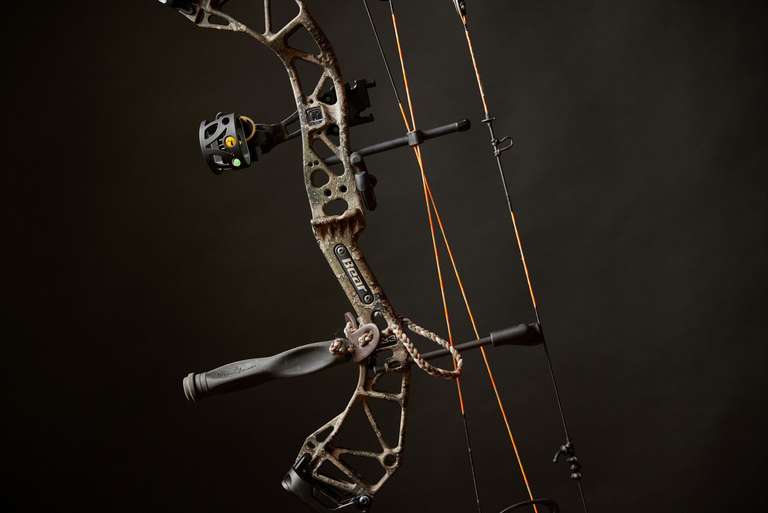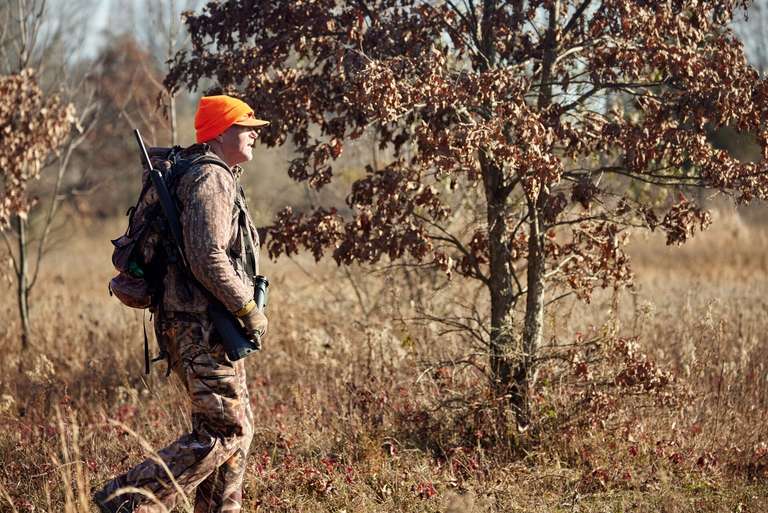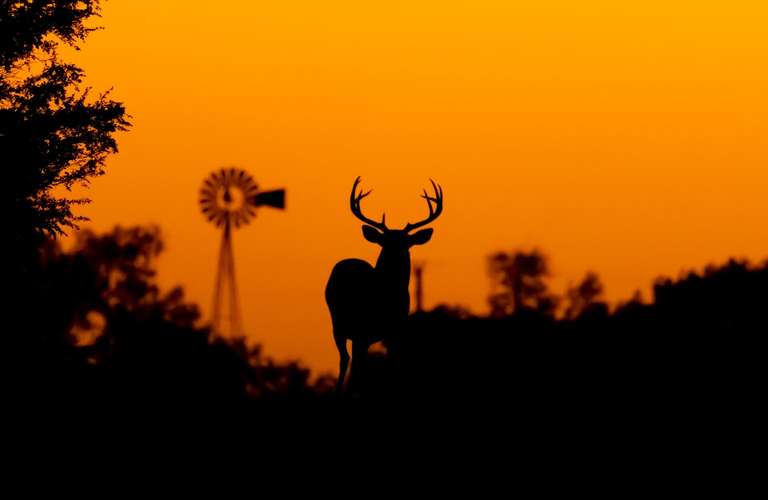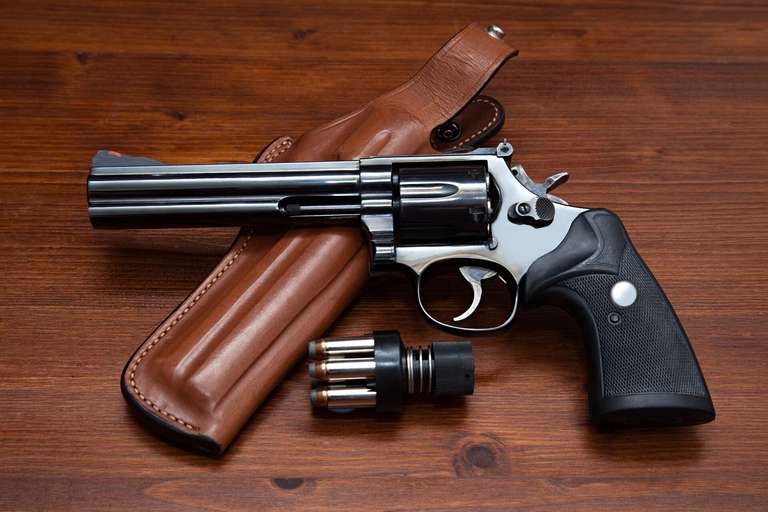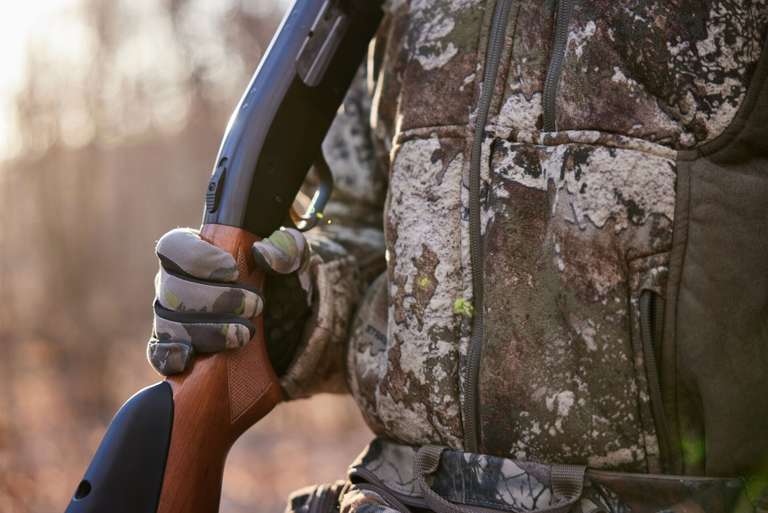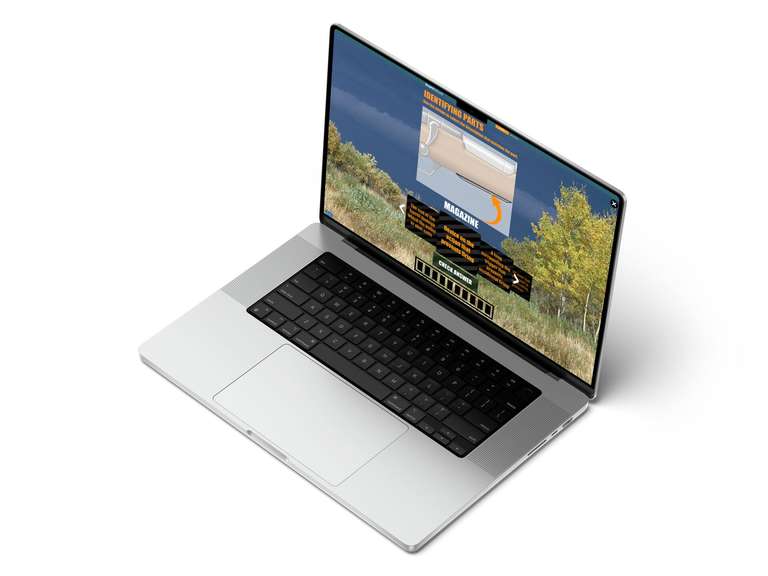How to Match the Caliber of Bullets to Your Firearm
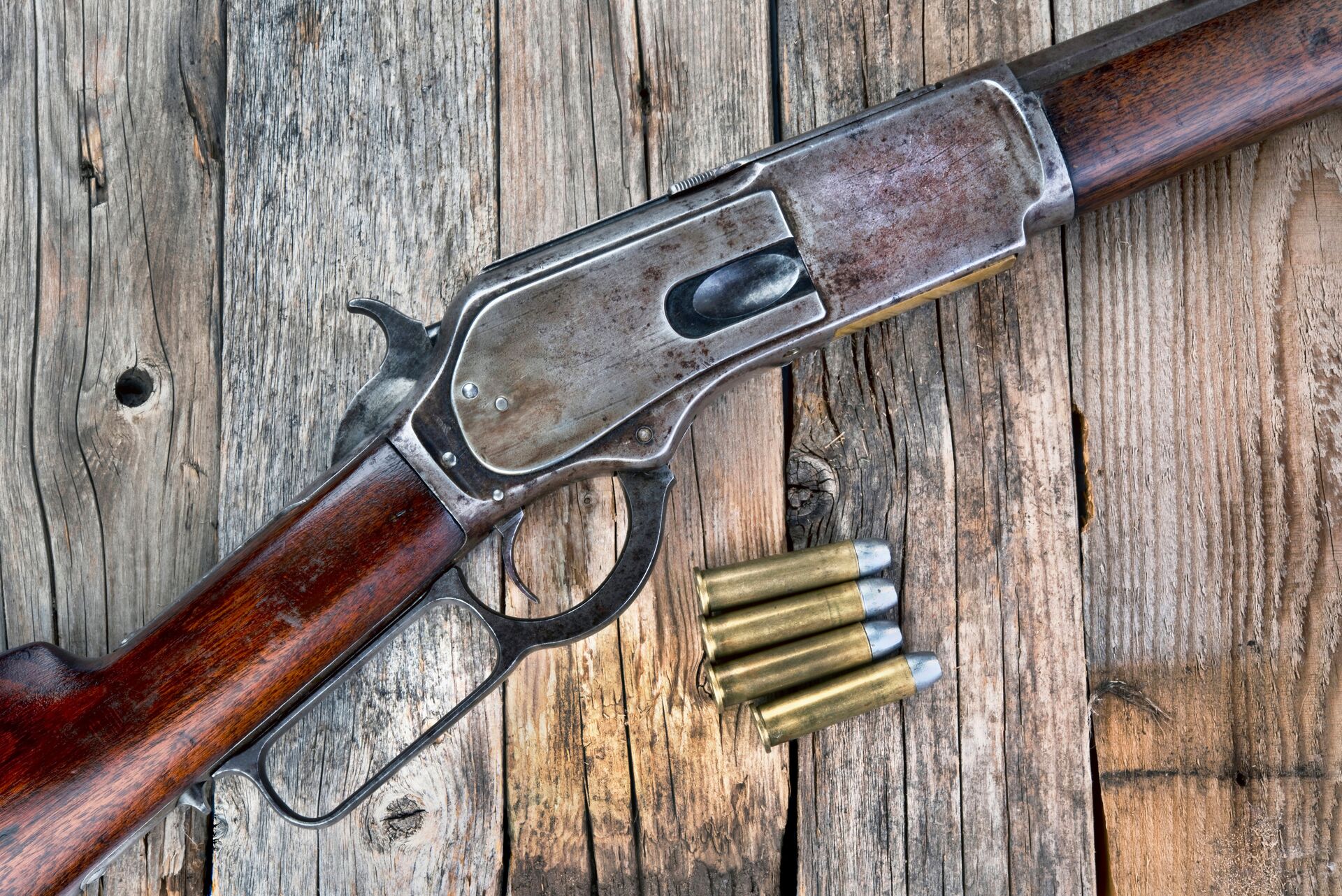
To be a safe and effective hunter, you must match the correct caliber of bullets used in your firearm to the firearm itself. Using the wrong caliber of ammunition in your firearm can lead to a severe accident.
Plus, you probably won't be able to bring home the game you're hunting when your firearm malfunctions.
Today, we talk about different calibers and how to identify and choose the best one for your firearm and hunting style. We'll explain everything from caliber basics to practical tips on selecting the proper ammunition for your next hunting trip. We'll also talk about the best way to prioritize safety in the field.
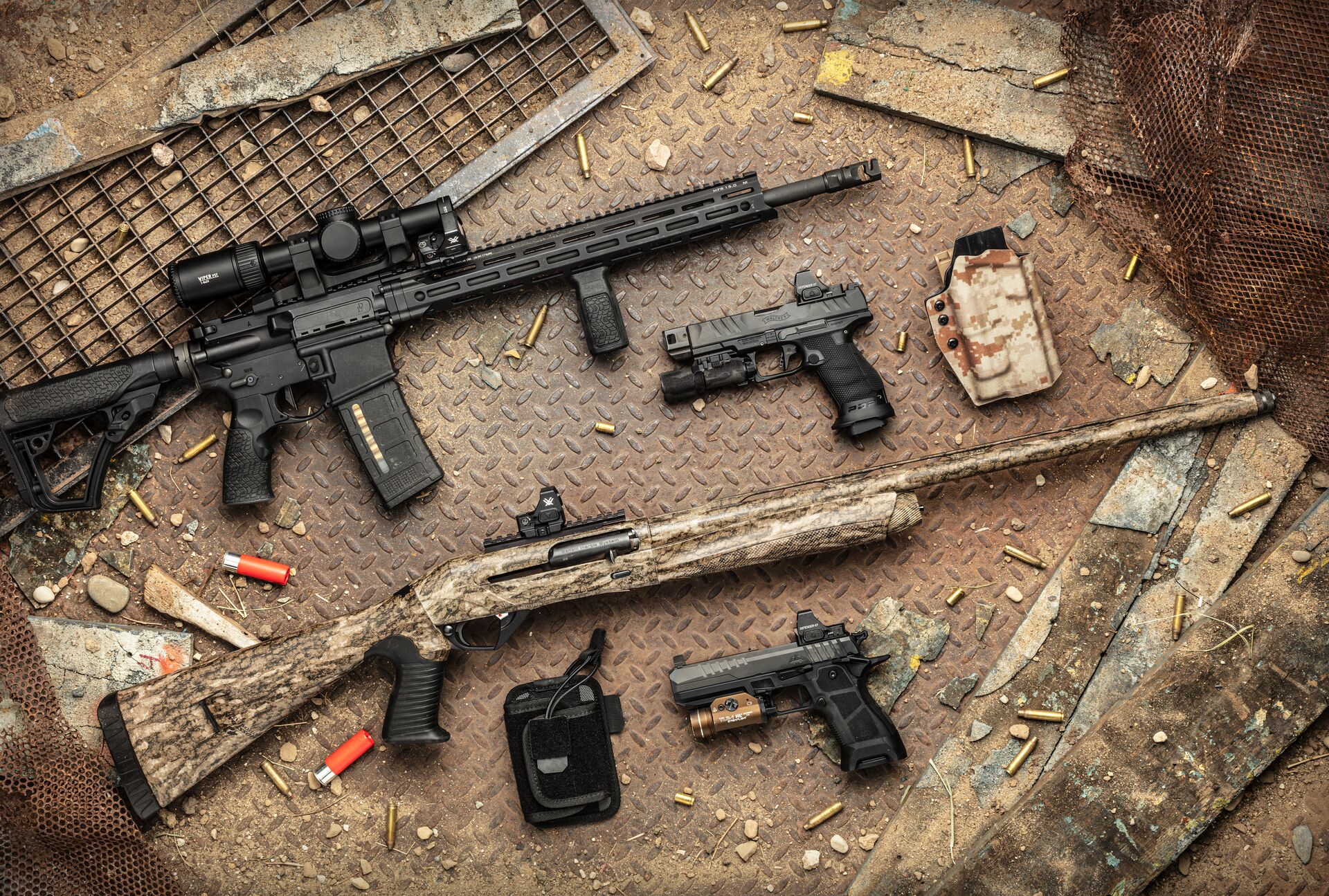
What is Caliber?
A bullet's caliber is the diameter of the bullet and the internal diameter of the firearm's barrel. Every hunter needs to understand this concept.
Most calibers are measured in either inches or millimeters. For example, a bullet listed as .30 caliber means it's 0.30 inches in diameter, while one described as 7.62mm means 7.62 millimeters in diameter.
Why Does the Caliber of Bullets Matter?
Using the correct caliber matters for several reasons:
- Safety: Using the wrong caliber is dangerous. A bullet that's too big for the barrel can cause the firearm to jam or even explode in a hunter's face.
- Accuracy: The right caliber allows your bullet to travel the distance you need and remain on target.
- Effectiveness: Matching the caliber to the game makes you effective. Different calibers work best for different types of game and shooting distances.
To be an accurate and safe hunter, you must understand different calibers, which ones to use for your firearm, and the game you plan to hunt.
Safety Considerations
Matching your ammo to your gun is about more than just performance. Using the wrong caliber can injure you or cause damaging malfunctions.
Remember to double and triple-check that you've brought the right ammo every time you leave to hunt.
Matching Caliber to Firearm Type
Picking the right caliber depends on the type of gun you're using and what you're hunting. Here's a breakdown:
Rifles
Rifles are the most common firearms used for hunting. Popular hunting calibers include:
- .243 Winchester: Best for small to medium game like deer, ideal youth caliber.
- .270 Winchester: Respected for its flat trajectory and effectiveness at longer ranges.
- .308 Winchester: Versatile and powerful, suitable for a wide range of North American game.
- .30-06 Springfield: A classic choice for large game like elk and bear.
Understanding the appropriate caliber based on the time of game you hunt is crucial when preparing your gear for a hunt.
Shotguns
Shotguns go by gauges instead of calibers. "Gauge" refers to a shotgun's bore size. The larger the number, the smaller the bore. For example, 12-gauge shotguns are larger than a 20-gauge.
Just remember:
- 12 Gauge: Highly versatile, suitable for a wide range of game.
- 20 Gauge: Good for smaller game and younger or smaller hunters due to its lighter recoil.
- Shell Length: Be sure the shell fits the receiver. Some shotguns can't accept 3" or 3.5" shells.
Many hunters use shotguns for a variety of game. Still, you can't substitute rifle ammunition for your shotgun, so make sure you have the right caliber of ammo before heading out into the field.
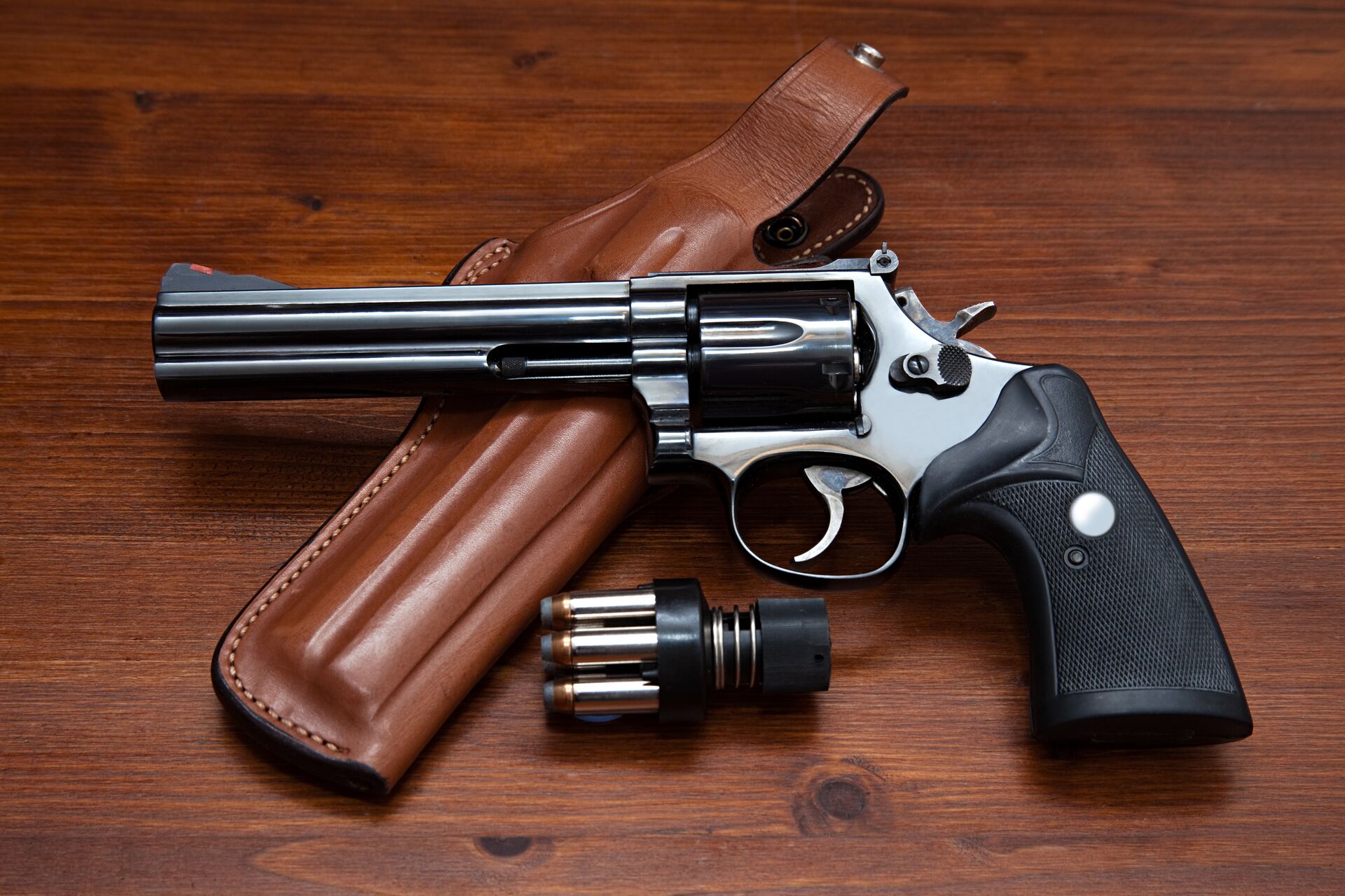
Handguns
While less common, some hunters use certain handgun calibers for specific types of game:
- .357 Magnum: Suitable for medium game at shorter ranges.
- .44 Magnum: Powerful enough for larger game, such as hogs. It's even capable of taking a bear with appropriate shot placement.
Before using a handgun for a hunt, make sure you've practiced with it and note the differences from when using a rifle or shotgun.
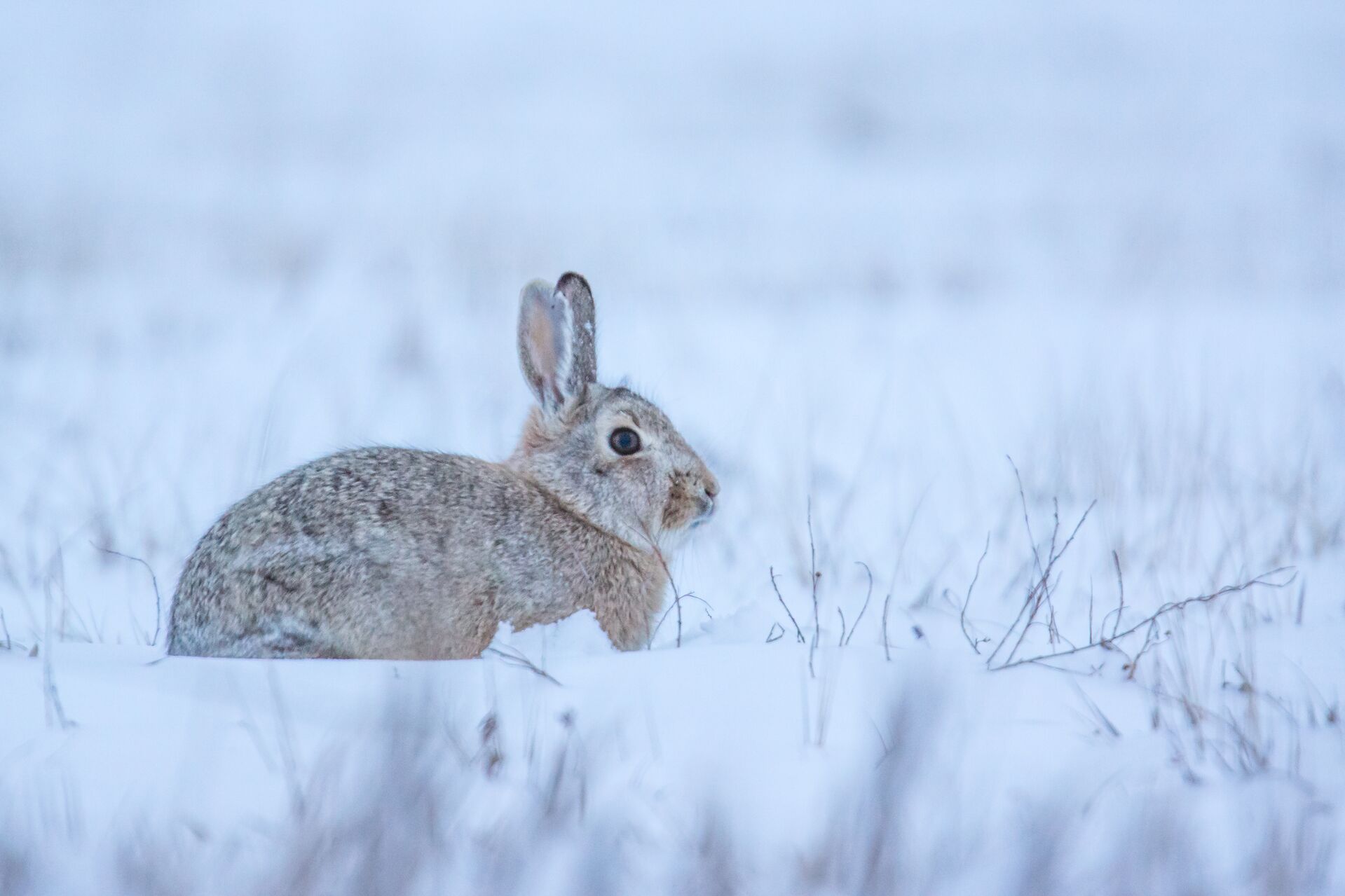
Consider the Game You're Hunting
As we mentioned, the type of game you're hunting determines the caliber choice. Here's a quick guide:
- Small Game: .22 LR or .17 HMR is usually good for small animals like rabbits and squirrels. These calibers are accurate and have minimal recoil.
- Medium Game: Calibers like .243 Winchester or .270 Winchester offer a good balance of power and accuracy for medium-sized game like deer.
- Large Game: You'll need more stopping power when hunting larger animals such as elk or bear. Calibers like .30-06 Springfield or .300 Win Mag are ideal.
Remember: using a caliber that's too big for a small target can lead to accidents or destroying the game you hoped to bring home. It's also an unethical way to hunt.
Range and Terrain Factors
Location plays an important role when looking to choose the right caliber.
Open Terrain
You'll need to take longer shots when hunting open land.
Calibers with higher velocity and flatter trajectories, such as .300 Win Mag, are good choices. They maintain accuracy over long distances, helping you hit your target at range.
Dense Forests
Shots are often at shorter distances in forested areas. Calibers with good stopping power and less recoil are ideal. The .30-30 Winchester, known for its effectiveness in thick brush, has taken more American deer than any other rifle.
Firearm Compatibility and Manufacturer Recommendations
Manufacturers list the calibers compatible with a gun on the barrel or receiver. Your firearm's caliber can also be found in the manufacturer's manual, so look there for manufacturer recommendations.
Follow the manufacturer's recommendations closely. Chambering an incorrect round will damage the gun at a minimum and can cause injury — or even death.
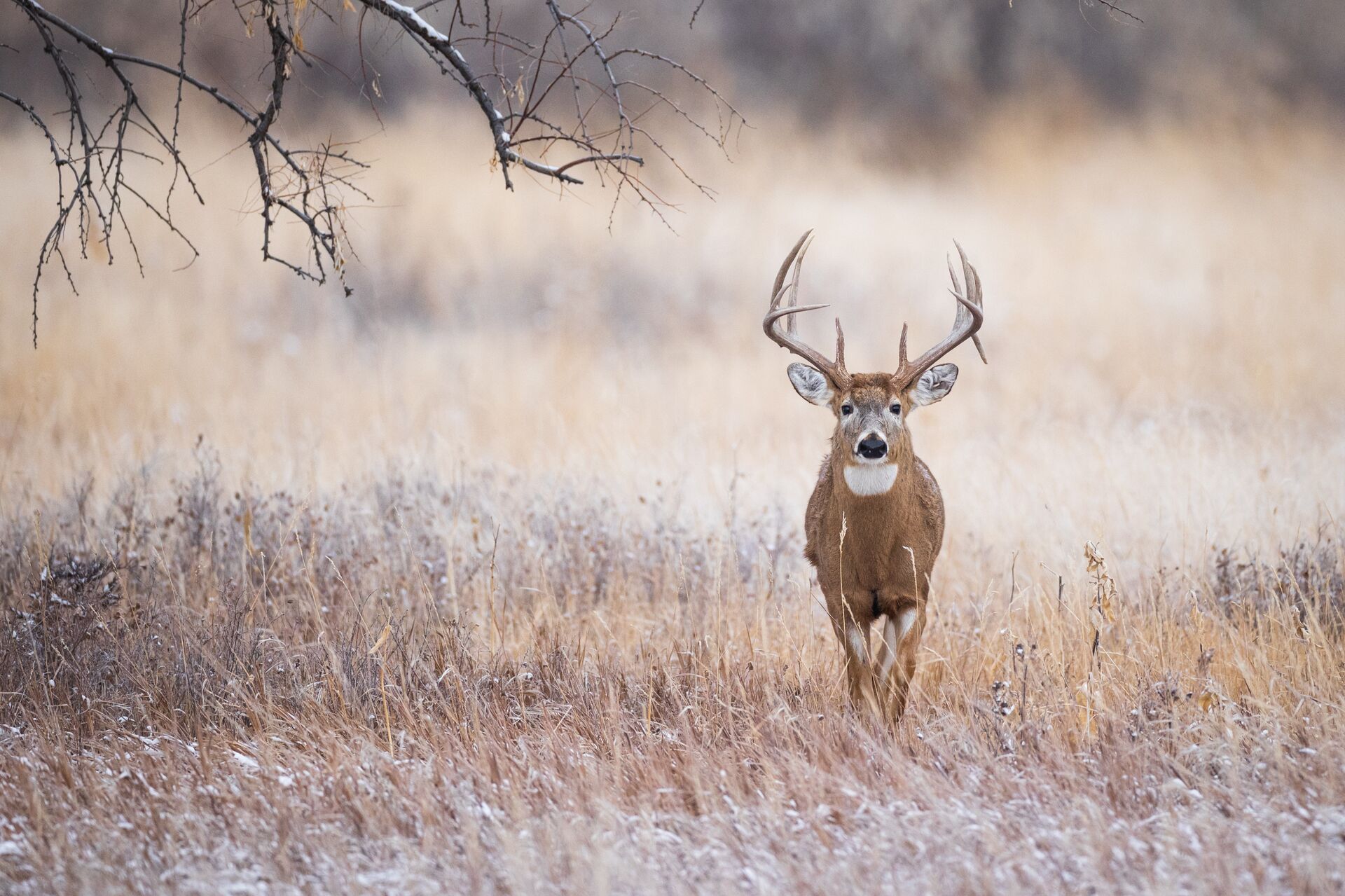
Practical Tips for Choosing a Caliber
Along with the factors we've covered so far, your comfort level is also crucial when choosing a caliber and firearm. You must be comfortable with the recoil, range, and other aspects of hunting with the firearm you choose.
Test Different Calibers
Visit a shooting range and test-fire different calibers. Find a place with rental guns, and try them out.
It's fun, and the hands-on experience will help you understand which calibers you're most comfortable with.
Consult Experts
Don't be afraid to seek advice from experienced hunters, gunsmiths, and firearm dealers. Hunting is an exciting, lifelong learning process. Taking a class is always an eye-opener, even for an experienced hunter.
Practice Regularly
Regular training is essential for becoming familiar with your chosen caliber and becoming more accurate. The more you practice, the more confident and accurate you'll become with your firearm.
Regular practice also helps you understand the nuances of different calibers, enhancing your overall hunting experience.
The Importance of Hunter Safety Courses
Knowing how to match bullet calibers to your firearm is just one aspect of hunting safety. Hunters also need to take hunter safety courses, which provide comprehensive training for various hunting scenarios.
Hunter safety courses like ilearntohunt cover essential topics such as:
- Proper handling and storage of firearms.
- Understanding hunting laws and regulations.
- Wildlife conservation and ethical hunting practices.
By taking courses from ilearntohunt, you'll gain valuable insights that enhance your safety and effectiveness.
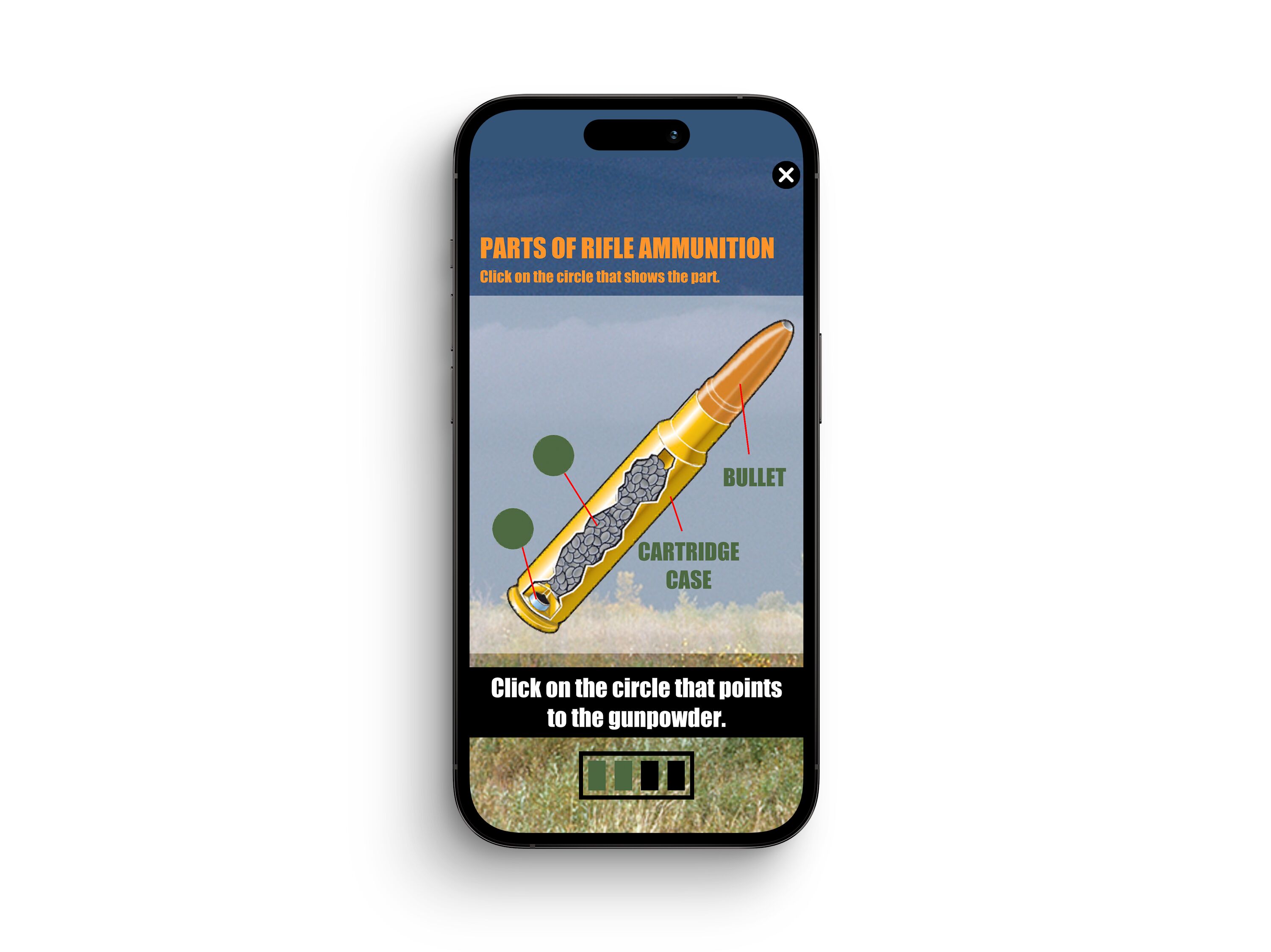
Match the Caliber of Bullets and Be Safe With ilearntohunt
Matching the right caliber of bullets to your firearm is a fundamental skill every hunter needs. You'll improve your chances of success by understanding caliber basics, considering safety, and choosing the appropriate caliber for your gun and game.
Remember to follow manufacturer guidelines, test different calibers to find what works best for you, seek advice from experts, and practice regularly.
Before heading out into the field, make sure you also understand how to stay safe! An online course through ilearntohunt teaches a wide range of hunting safety essentials, including the caliber of bullets for different firearms, how to load and transport a firearm safely, and safe shooting practices when in the field.
If you don't have your hunter safety certification yet, now is the time to get it! Remember: most states require a hunter education course before you can get your license. So, find the course for your state and gain the knowledge and skills you need to hunt safely and responsibly.

